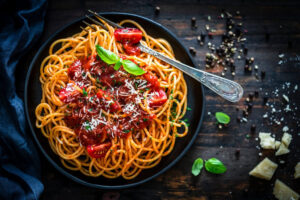As the readers may know, Oliver Cromwell had a notorious effect on British history. Even after Oliver Cromwell’s rule was over and England returned to monarchy, the industrial revolution in the 19th century further made the food worse in England. The Industrial Revolution began in England in the 19th century with innovations like the steam engine. The Revolution forever changed the way the world functioned and it also forever collapsed the quality of food in England.
The industrial revolution meant that more people from rural farms were moving into the city for better-paying jobs. Though, it was just a dream. The lack of diversity in agriculture in England got worse due to the lack of farmers in the 19th century. On top of this, the harsh working conditions and long hours that most workers encountered in England in this era diminished the cuisine in England to simple and quick grabs that had little to no taste and flavor.
The situations mentioned above brought upon horrendous food combinations never imagined outside of England exemplified by the jellied eel. Jellied Eel was invented due to the severe pollution in the Thames River; eels were the only fish that could survive the pollution and Londoners invented this dish sometime during the Industrial Revolution. The jellied eel is a self-explanatory dish that stores eel flesh in a jellied form and is eaten cold. By that time, it was highly welcome.
The toast sandwich has been another dish that causes people question British cuisine. It is literally a toasted bread in between two slices of bread. Sometimes the toast would get toasted with butter, salt, pepper, and cumin to flavor. The toast sandwich is regarded to be a result of the Industrial Revolution when workers needed a quick meal to load up on carbs.
As one of the most developed and influential countries on the planet, and culinary stars like Gordon Ramsey and Jamie Oliver, it is a shame that Britain still keeps a fame for bad food. However, historical and pre-historical proofs justify their cuisines. Certain phenomenon like the Puritan Revolution and the Industrial revolution united to bland and boring foods as well as the gloomy and unpredictable climate. In spite of British food being a laughing stock for people to make fun of, it would not be just to blame the Brits for historical influences that they did not have control over. Numerous countries in the world have the same story and were influenced by political events taken place to damage even their local and classic foods.












